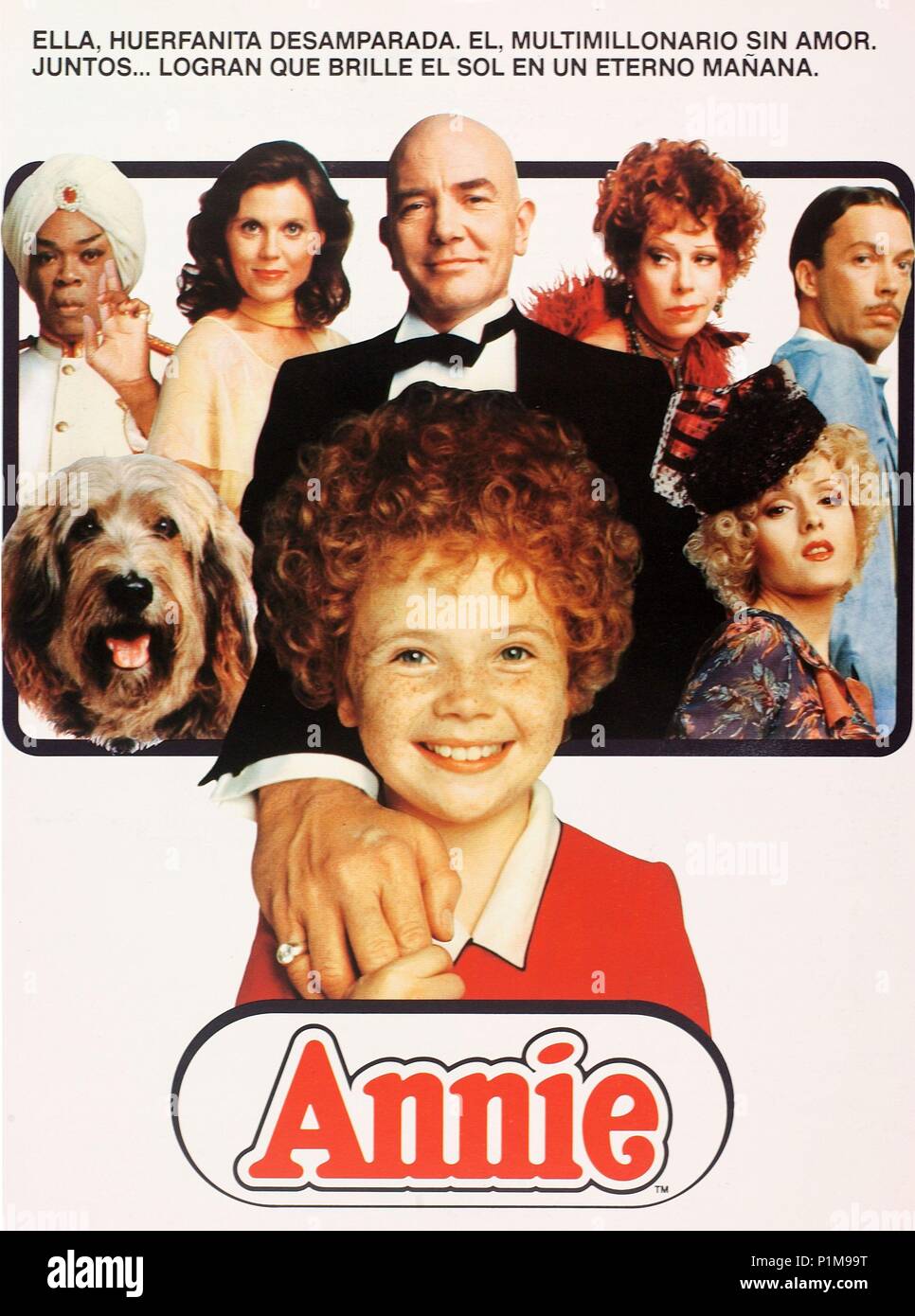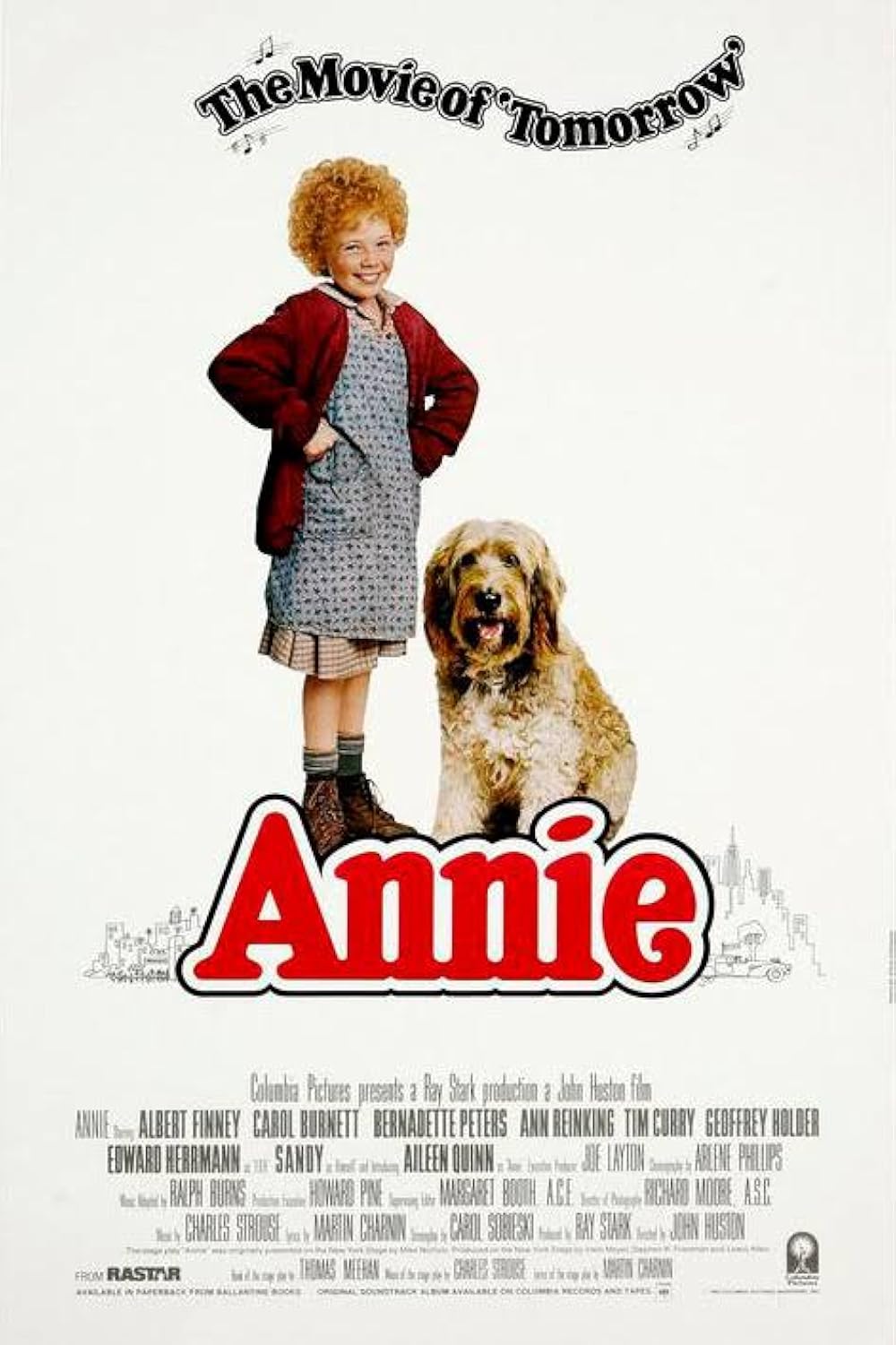Could a film, spun from the threads of a comic strip and a Broadway sensation, truly capture the hearts of a generation? Annie, the 1982 film adaptation, not only answered that question with a resounding yes, but it also cemented its place in cinematic history as a beloved classic, a testament to the enduring power of hope and the magic of musical storytelling.
Based on the wildly popular 1977 Broadway musical, which itself drew inspiration from Harold Gray's long-running comic strip, Little Orphan Annie, the 1982 film transports audiences to the heart of the Great Depression. It follows the spirited adventures of Annie, a red-haired orphan with an unwavering optimism, as she navigates the harsh realities of a New York City orphanage under the tyrannical rule of Miss Hannigan. The film, directed by the legendary John Huston and penned by Carol Sobieski, is a vibrant tapestry of song, dance, and heartfelt emotion, proving that even amidst hardship, the dream of a brighter tomorrow can flourish.
| Personal Information | Details |
|---|---|
| Title | Annie (1982) |
| Genre | Musical Comedy-Drama |
| Director | John Huston |
| Writer | Carol Sobieski |
| Based On | The 1977 Broadway musical Annie by Charles Strouse, Martin Charnin, and Thomas Meehan, which itself is based on the Little Orphan Annie comic strip by Harold Gray. |
| Release Date | 1982 |
| Running Time | 2 hours 7 minutes |
| Cast | Albert Finney, Carol Burnett, Bernadette Peters, Ann Reinking, Tim Curry, Aileen Quinn |
The narrative, brimming with iconic musical numbers like Tomorrow and It's the Hard-Knock Life, showcases Annie's journey from the bleak confines of the orphanage to the opulent world of billionaire Oliver Daddy Warbucks. Albert Finney embodies Warbucks with a gruff exterior that gradually melts away, revealing a compassionate heart. The supporting cast, featuring the comedic brilliance of Carol Burnett as the gin-swilling Miss Hannigan and the captivating Bernadette Peters, further elevates the film's appeal. The production design, meticulously recreating the era's atmosphere, envelops the viewer in a world of both poverty and privilege, highlighting the stark contrasts of the time.
The film's success lay not just in its lavish production values or the undeniable charisma of its cast, but also in its core message of resilience and the pursuit of dreams. Annie's unwavering belief in a better future, her refusal to be defeated by adversity, resonated deeply with audiences. The film’s themes of family, friendship, and the triumph of good over evil provided a much-needed dose of optimism during a time often marked by economic hardship. The narrative unfolds against the backdrop of the Great Depression, adding a layer of historical context and social commentary to the story. The story offers a glimpse into the struggles faced by many during that period.
The casting of Aileen Quinn as Annie was a pivotal decision. Her performance, filled with infectious energy and a vulnerability that endeared her to viewers, became the heart and soul of the film. The young actress perfectly embodied the character’s optimistic spirit, managing to convey both the hardships and the unwavering hope that defined Annie. The film's musical numbers, carefully crafted to enhance the narrative, became instantly recognizable, forming a soundtrack that continues to be cherished by generations. The choreography, brimming with energy and perfectly in sync with the music, became a highlight, elevating the entertainment factor.
One of the film's key strengths is its adaptation of the Broadway musical. Carol Sobieski, the film's writer, successfully translated the stage production's essence onto the big screen, maintaining the emotional impact and the narrative drive. The songs seamlessly integrated into the plot, serving not only as musical interludes but also as crucial components of the storytelling process. The adaptation retained the spirit of the original musical while utilizing the cinematic medium to enhance the experience.
The film also explores the power of kindness and compassion. Warbucks' transformation, influenced by Annie's positive influence, demonstrates that even the most hardened individuals can be touched by empathy. The supporting characters, such as Warbucks' staff and the orphans, contribute to the film's heartwarming portrayal of human connections. The emphasis on these relationships, particularly the bond between Annie and Warbucks, provides emotional depth to the narrative.
The vibrant visuals and the carefully constructed sets further enhance the film's appeal. The contrast between the bleakness of the orphanage and the opulence of Warbucks' mansion perfectly mirrors the film's thematic concerns. The attention to detail, evident in the costumes, the props, and the settings, recreates the ambience of the Great Depression in a way that's both realistic and visually appealing. The film offers an authentic glimpse into the style and culture of the era.
The enduring popularity of the 1982 Annie is a testament to its timeless themes and its ability to connect with viewers across different generations. It's a story about perseverance, about the power of hope, and about the importance of family, both chosen and by birth. The film has solidified its place in the hearts of moviegoers, continuing to entertain and inspire with its compelling story and memorable characters. This adaptation, in its own right, remains a testament to the power of adapting successful stage plays to the big screen, while ensuring the core elements of the source material remain.
From the comedic performance of Carol Burnett, showcasing her ability to deliver both humor and depth, to the captivating presence of Aileen Quinn, the film boasts a strong ensemble cast. Albert Finney, as the initially stoic Warbucks, undergoes a transformation guided by his interactions with Annie, offering a nuanced portrayal of a character evolving from a hard-hearted industrialist to a caring benefactor. The meticulous direction of John Huston provides the film with a narrative fluidity and a consistent emotional tone, adding layers of meaning.
In essence, Annie (1982) is more than just a musical; it's a cinematic experience that continues to captivate audiences. Its vibrant storytelling, unforgettable songs, and uplifting message ensure its place as a cherished classic. The film remains a potent reminder that optimism can triumph, even in the darkest of times, making it a beacon of hope and entertainment that continues to resonate with viewers of all ages.



